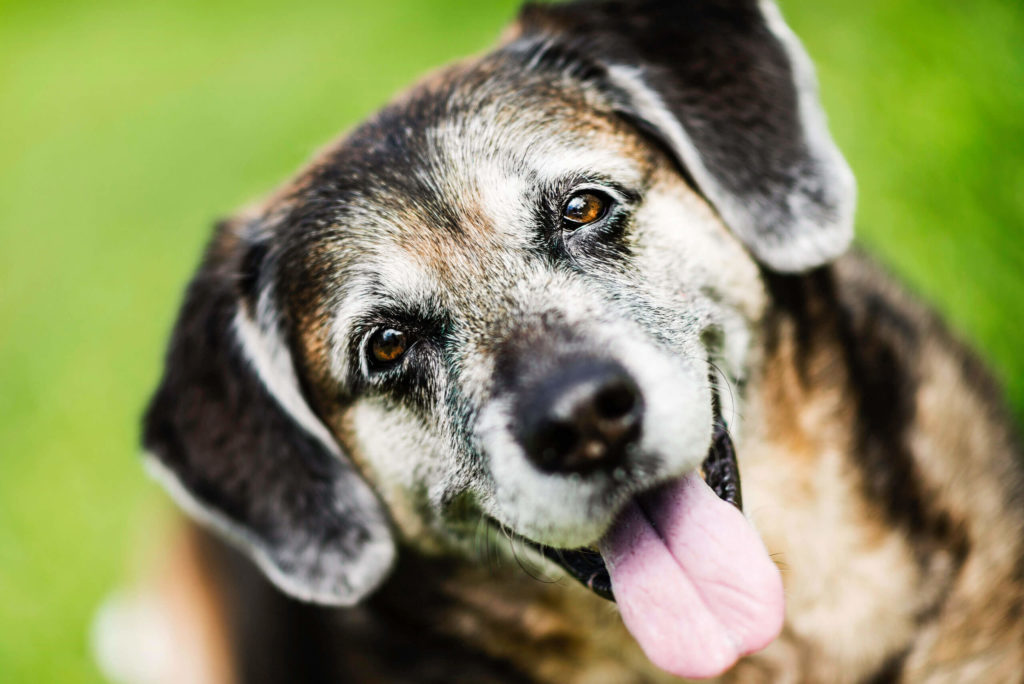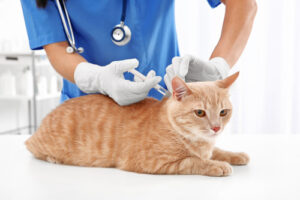Our cherished dogs and cats go through the aging process just like we do, but much more quickly. As your pet ages, you need to keep a close eye on their health and note any unusual physical changes or deviations from their daily habits. Senior dogs and cats, like senior humans, become frail and therefore more prone to illness and injury. For this reason, additional and more frequent care is necessary to give them the best quality of life in their later years.
At Laurel Veterinary Clinic, our veterinarians are skilled in caring for your senior pet. If you have a senior dog or cat and would like to find out more about senior care, read our Broomfield, CO, animal hospital’s article below.
What Makes a Pet a Senior?
Cats enter senior status at around 7 human years. Similarly, dogs enter senior status between 7 – 12 years old, depending on their size.
If you share your life with a senior pet, you need to consider their preventative care as well as their general wellness care. Here at Laurel Veterinary Clinic, our veterinarians are here to help you make sure your pet’s care includes a healthy diet, exercise, and vet visits every 6 months.
Common Health Problems in Senior Pets
As cats and dogs age, they can develop certain health problems. Like elderly humans, our pets’ bodies start to weaken, and they can get sick more easily. When they get sick, it can be harder for them to fight the infection or illness.
Senior cats and dogs can suffer from:
- Cancer
- Heart disease
- Kidney or urinary tract disease
- Liver disease
- Diabetes
- Joint or bone disease
- Senility
- Weakness
- Immunocompromising diseases
- Hearing loss
- Vision loss
- Loss of smell
Preventative Care
Preventative care is essential for your senior pet. We strongly advise seeing your vet every 6 months, instead of every 12 months. When we see your senior pet every 6 months, our veterinarians can detect an illness in its early stages and provide a higher level of care to treat the issue or even prevent it from worsening.
Additionally, vaccinations become more important as your pet ages, as their immune system will grow weaker. Vaccinations can help your pet fight off infections, or experience less severe symptoms.
Senior pets also need protection from parasites and parasite-borne diseases, as their bodies will have a harder time fighting off sickness. Obtain parasite preventatives from your veterinarian to protect your pet from fleas, ticks, heartworms, roundworms, and other pests.
Important Things to Consider as Your Pet Ages
Here are some of the most important things to consider as your pet approaches their senior years:
Behavior Changes
Some pets become less patient and more irritable with young children as they get older. Make sure your pet is given their space and politely discourage children from interacting with your pet if necessary.
Arthritis/Joint Pain
Older pets may also suffer from arthritis or stiffening joints. If your pet has arthritis, make sure everything they need is easily within reach. Put down floor runners to create a non-slip surface for your pet to walk on and elevate their food and water bowls so they don’t have to bend their heads down to eat and drink. Place ramps where needed to help your pet access areas they’d otherwise have to jump to reach. You should also talk to your vet about any treatment options that may reduce your pet’s arthritis discomfort.
Diet
Senior pets need a healthy diet formulated for their aging bodies. As dogs and cats age their caloric needs will change. If they are still on a diet formulated for a younger pet, they could become overweight. Talk to your veterinarian to ensure your pet is getting the right nutrients and the correct amount of food to maintain a healthy weight.
Mobility
As your pet ages, try to encourage them to stay active. Take your dog for regular walks or throw a ball. Do whatever you can to keep them moving. If they become too sedentary, your pet will gain weight, which could lead to diabetes, arthritis, and other issues.
Mental Health
Senior pets can also develop mental issues as they age. They might become confused or disoriented. If you notice these signs in your pet, contact us so we can help. Your vet can work with you to determine what can be done to make life better for your pet.
End-of-Life Care
As pets near the end of their life, their quality of life may diminish due to poor health. This may lead you to consider euthanasia to alleviate their suffering. As a pet owner, this is the most challenging decision you’ll have to make for your pet, but our team at Laurel Veterinary Clinic can help you every step of the way.
Is It Time for Your Senior Pet’s Visit?
Helping your pet enter their senior years can bring many changes for them and for you, but it can also be extremely rewarding. To ensure a comfortable, healthy life for your senior dog or cat, contact us at (303) 469-5363 to schedule their next checkup!





